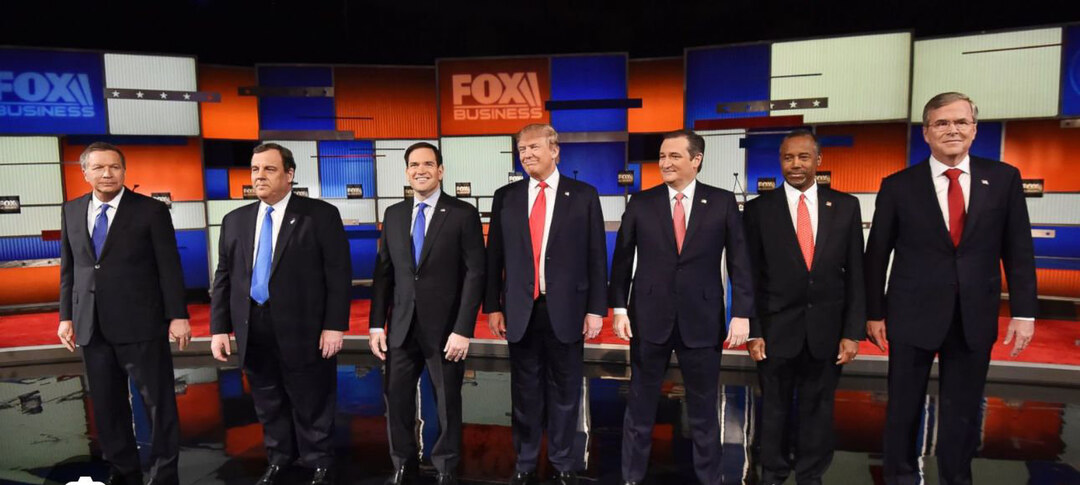As the US approaches election day on Nov. 5, many are reminded of the atmosphere surrounding the 2016 race between Republican nominee Donald J. Trump and Democratic candidate Hillary Clinton. During my time residing in the US, in 2016, at that critical moment in US history, I witnessed the Democrats’ overconfidence.
Like many others, including myself, we believed Clinton’s path to the White House would be smooth and effortless. This confidence was understandable and justified; Clinton was a seasoned politician who enjoyed endorsements from influential figures within the Democratic Party and other prominent individuals besides major media outlets. While her opponent, Trump, lacked political experience and received significantly less support from both influential Republicans and the media.
As the early hours of election day passed in November 2016, Clinton’s victory seemed all but assured, particularly among Democratic-leaning media outlets such as CNN and MSNBC. The prevailing narrative in the media and among Democrats was clear: Clinton, with her political experience and widespread endorsements, was on a smooth path to the White House. However, around 11 p.m., when the news broke that Trump had secured Ohio (18 electoral votes) and Florida (29 electoral votes), the media coverage shifted dramatically. A wave of disbelief rippled through Democratic supporters who appeared on TV screens, while among Republicans, a flicker of hope began to emerge. At that point, the question arose: Could Trump pull off this upset?
With each result, especially after Florida was called for Trump, that question grew louder. Interestingly, before Pennsylvania’s result was even announced, CNN data revealed that a significant number of voters in Luzerne County, Pennsylvania, where I was at the time, had shifted toward the Republican side, surprising many in a county that had long been a Democratic stronghold. Meanwhile, Trump continued inching closer to the magic number of (270) electoral votes needed to win the White House. Then came a pivotal moment: The result in Wisconsin, with its 10 electoral votes, unexpectedly delivered a devastating blow to the Democrats. The state, reliably blue since 1988, flipped to Trump, marking a significant electoral shift. By the end of that incredible night, the “blue wall” that Democrats had proudly built and depended on for years crumbled as Trump, a political newcomer with no prior experience in either the military or politics, secured victory.
Trump’s win defied expectations, as he captured the Electoral College despite receiving 62.98 million votes compared to Hillary Clinton’s 65.85 million, leaving the political establishment — and much of the country — in shock at how Trump managed to secure millions of voters.
In the 2020 election, despite being blocked or restricted from major social media platforms such as X, Facebook and Instagram, and despite the pandemic circumstances, Donald Trump’s performance remained remarkably strong, particularly in key battleground states. For instance, in Wisconsin, Trump secured 48.8 percent of the vote, trailing Biden by a narrow margin of just 0.6 percent. Similarly, in Michigan, Trump garnered 47.8 percent, only 2.8 percent behind Biden. In Pennsylvania, a crucial state, Trump achieved 48.8 percent, losing to Biden by a mere 1.2 percent.
These results demonstrate Trump’s significant ability to mobilize voters, even under tough circumstances, in states with competitive political landscapes. Trump’s resilience in these states shows his capacity to challenge mainstream political narratives and maintain a formidable presence in American politics. This data-driven evidence highlights that Trump’s political strength was not hindered by his social media restrictions but rather amplified by his ability to engage directly with voters on the ground, proving his continued relevance in the US political arena.
His influence, furthermore, extends beyond elections, shaping the direction of the Republican Party itself. Many candidates within the GOP now seek Trump’s endorsement to secure their political futures; those who fail to align with him, as seen in the case of former Wyoming senator Liz Cheney, often face significant political consequences.
Moreover, the impact of US elections reaches far beyond American borders, shaping the global geopolitical system. In this tight race, regardless of whether Trump or Harris arrives at the White House next January, the new president will inherit a heavy legacy from their predecessor. In our world, with conflict in many hotspots like Ukraine, Gaza and Lebanon, one of the few countries that can act as a credible mediator is Saudi Arabia. This is particularly due to its good relationships with key players in the region and beyond, such as Russian President Vladimir Putin, who described the Kingdom five days ago as “sincere” and an “acceptable” venue for potential Ukraine peace talks. In addition, Riyadh has good relationships with the Palestinian Authority and many players inside Lebanon and others in Middle East, which puts the Kingdom in a unique position worldwide.
Let us hope the new US president will play a critical role in stopping the unprecedented crises humanity has not faced since the Second World War, especially the escalation in the Middle East, where people recognize Washington’s significant role in peace and security.
In conclusion, as the US approaches election day on Nov. 5, the lessons from 2016 continue to resonate. In 2016, Democrats underestimated Donald Trump, which was a critical factor in their unexpected loss. This time, Democrats appear determined not to repeat that mistake. They are preparing for a massive turnout, not only to support Harris but also to prevent Trump’s return to the White House. Underestimating Trump is no longer an option for Democrats, or even disillusioned Republicans; therefore, this will be a key factor in making the race more competitive. The upcoming US president, whether it is Trump or Harris, will have much to do and will need credible partners, such as the Kingdom of Saudi Arabia, to help address global crises.
• Nasser bin Hamed Al-Ahmad is a political researcher and writer with over 7 years of experience in political media. He specializes in analyzing political trends in the MENA region and the US.
X: @nasseralahmad3














